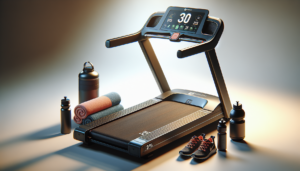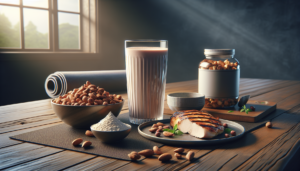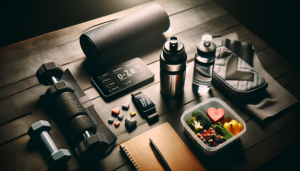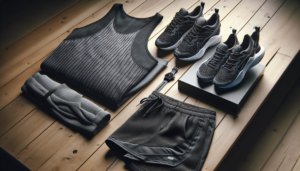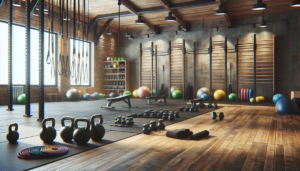The Importance of Hydration During Workouts
Staying properly hydrated is essential for anyone engaging in physical activity, whether you’re a professional athlete or a casual gym-goer. The human body is composed of approximately 60% water, and maintaining adequate fluid levels is crucial for optimal performance and overall health. Neglecting hydration can lead to a host of issues, from mild discomfort to serious health risks.
Why Hydration is Crucial for Performance
Proper hydration is vital for maintaining peak performance during workouts. When you exercise, your body loses fluids through sweat, which can lead to dehydration if not replenished. Even mild dehydration can cause fatigue, reduced endurance, and impaired cognitive function. Staying hydrated ensures that your body has the necessary fluids to regulate body temperature, transport nutrients, and remove waste products.
Moreover, hydration plays a key role in energy metabolism. When you’re well-hydrated, your body can efficiently convert stored energy into usable fuel for your muscles. This means you can work out longer and harder, pushing yourself to new limits.
Effects of Dehydration on the Body
Dehydration occurs when your body loses more fluids than it takes in. During intense workouts, sweat rate can exceed fluid intake, leading to a net loss of water. The effects of dehydration can range from mild to severe, depending on the extent of fluid loss.
Common signs of dehydration include:
- Thirst
- Dry mouth
- Fatigue
- Dizziness
- Headache
- Dark urine
If left unchecked, dehydration can lead to more serious consequences such as heat exhaustion, heat stroke, and kidney problems. It’s crucial to listen to your body and drink fluids regularly to prevent these issues.
Pre-Workout Hydration Strategies
Preparing your body for exercise starts well before you hit the gym. Proper hydration in the hours leading up to your workout can make a significant difference in your performance and overall experience.
How Much to Drink Before Exercising
The American College of Sports Medicine (ACSM) recommends drinking 17-20 ounces of water 2-3 hours before exercise, and another 8 ounces 20-30 minutes prior to your workout. This gives your body time to absorb the fluid and ensures you start your workout well-hydrated.
However, it’s important to note that hydration needs can vary widely between individuals. Factors such as body size, sweat rate, and the intensity of the workout all play a role. A good rule of thumb is to drink enough fluids to produce light-colored urine.
Best Pre-Workout Drinks
When it comes to pre-workout hydration, water is always a safe and effective choice. However, there are other options that can provide additional benefits:
| Drink | Benefits |
|---|---|
| Electrolyte Solutions | Replaces electrolytes lost through sweat |
| Low-Fat Milk | Provides carbohydrates and protein for energy |
| Coconut Water | Contains natural electrolytes and carbohydrates |
Avoid sugary drinks and alcohol, as these can lead to dehydration and impaired performance.
Hydration During Your Workout
Maintaining proper hydration during exercise is just as important as pre-workout preparation. As you sweat, your body loses not only water but also electrolytes like sodium and potassium. These need to be replaced to maintain fluid balance and support muscle function.
Recommended Fluid Intake During Exercise
The amount of fluid you need during a workout depends on several factors, including the intensity and duration of the activity, as well as individual sweat rate. As a general guideline, the ACSM recommends drinking 7-10 ounces of fluid every 10-20 minutes during exercise.
However, it’s important not to overdo it. Drinking too much water can lead to a condition called hyponatremia, where sodium levels in the blood become diluted. Symptoms include nausea, headache, confusion, and in severe cases, seizures and coma.
Best Drinks to Stay Hydrated
Water is often sufficient for workouts lasting less than an hour. For longer or more intense sessions, consider the following options:
| Drink | Benefits |
|---|---|
| Sports Drinks | Contain electrolytes and carbohydrates for energy |
| Electrolyte Tablets | Convenient way to add electrolytes to water |
| Coconut Water | Natural source of electrolytes and carbohydrates |
Listen to your body and drink when thirsty. If you’re exercising in hot conditions or for extended periods, you may need to drink more frequently.
Post-Workout Hydration
The job of hydration doesn’t end when your workout does. In fact, what you drink after exercising is crucial for recovery and preparing your body for the next session.
Replenishing Fluids After Exercise
After a workout, your priority should be replacing the fluids and electrolytes lost through sweat. A good target is to drink 16-24 ounces of water for every pound of body weight lost during exercise.
Don’t rely on thirst alone as an indicator of when to drink. By the time you feel thirsty, you may already be dehydrated. Make a habit of drinking a glass or two of water after your workout, even if you don’t feel like you need it.
Best Post-Workout Drinks
In addition to water, consider these drinks for optimal post-workout recovery:
| Drink | Benefits |
|---|---|
| Low-Fat Chocolate Milk | 4:1 carb-to-protein ratio for muscle recovery |
| Protein Shakes | Help repair and rebuild muscles |
| Tart Cherry Juice | Reduces inflammation and muscle soreness |
Experiment with different options to see what works best for you. Some people find that certain drinks cause stomach upset after a workout, so pay attention to how your body responds.
Electrolytes and Their Role in Hydration
Electrolytes are minerals that carry an electric charge when dissolved in water. They play a crucial role in hydration and overall body function, particularly for athletes and active individuals.
Why Electrolytes are Important
The primary electrolytes involved in hydration are sodium, potassium, magnesium, and calcium. These minerals help regulate fluid balance, muscle contractions, and nerve signals. When you sweat, you lose electrolytes along with water, which can lead to imbalances if not replenished.
Sodium is the electrolyte lost in the highest concentrations in sweat. It helps maintain fluid balance and blood pressure. Low sodium levels can cause headaches, nausea, and fatigue. Potassium works in tandem with sodium to regulate fluid and muscle contractions. Magnesium supports energy metabolism and muscle function, while calcium is important for bone health and muscle contractions.
Best Sources of Electrolytes
Many foods and drinks can help replenish electrolytes lost through exercise. Good sources include:
- Sports drinks
- Electrolyte tablets or powders
- Coconut water
- Milk
- Fruits (bananas, oranges, watermelon)
- Vegetables (spinach, kale, avocados)
- Nuts and seeds
For most people, a balanced diet and adequate fluid intake are enough to maintain electrolyte balance. However, if you’re exercising intensely or in hot conditions, you may need to take additional measures to replace what you lose through sweat.
Common Hydration Mistakes to Avoid
Even with the best intentions, it’s easy to fall into common hydration pitfalls. Here are some mistakes to watch out for:
Overhydration and Its Risks
While dehydration is a common concern, overhydration can be just as dangerous. Drinking too much water can dilute sodium levels in the blood, leading to a condition called hyponatremia. Symptoms include nausea, headache, confusion, and in severe cases, seizures and coma.
To prevent overhydration, drink according to your thirst and monitor your urine color. Aim for light yellow; if it’s clear, you may be drinking too much. During extended exercise sessions, include electrolyte sources to maintain proper balance.
Avoiding Sugary Drinks
Sugary drinks like soda, juice, and energy drinks can be tempting for a quick energy boost, but they often do more harm than good. The high sugar content can cause blood sugar spikes and crashes, leading to fatigue and dehydration.
Moreover, many sugary drinks contain caffeine, which can have a diuretic effect and contribute to fluid loss. Stick to water, electrolyte drinks, and other low-sugar options for optimal hydration.
By being mindful of these common mistakes and following best practices for hydration, you can ensure that your body has the fluids and electrolytes it needs to perform at its best.
#ED#


